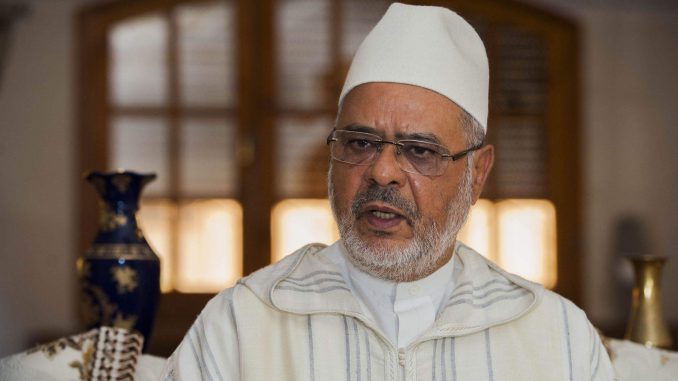
The repercussions of an article by Ahmed Raïssouni about the legality of loans relating to the “Intilaka” program, launched following royal instructions, continue to generate much controversy and debate among some clerics and Islamic jurists.
In this regard, the Salafist Hassan Kettani, simply shared a long post on his Facebook page, written by the Libyan Sheikh Mahmoud Salama Al-Gharyani, professor of Sharia at the University of Zaïtouna, in which he considered that Raïssouni made the same bad choice as some contemporaries, by considering that the low interest rate could be used as a reason to authorize an interest-rate loan. According to this Sheikh, the low interest rate could in no way be a reason to authorize this type of credit. In his view, such a reasoning would be an infringement of the principles of the Shariah law. The Sheikh said: “It is imperative to preserve the limits of the Sharia and not to tolerate anything related to an interest rate. The fatwa of the Faquih Raïssouni went in the wrong direction by giving precedence to the social and materialistic purpose over Sharia. However, serving social objectives through this kind of fatwa requires a very thorough study whose objective is to verify that the economic constraints could in no way be exceeded by lawful alternatives within the meaning of Islamic Shariah. One should not rush into approving matters that violate explicit Shariah laws. Believing that the “Maqasid” (Purposes of the Sacred Law in Islam) correspond only to the “Maqasid” facilitating the conditions of daily life, is a way of privileging interest in its basely “earthly” and material dimension, to the detriment of the preservation of the Sharia’s rules and its protection against corruption. “, he stressed.
In a video published on his page, the Salafist Sheikh Hammad Al-Kabbaj, expressed his astonishment at the fatwa of Raïssouni, consisting in authorizing this usurious credit, under the excuse that its interest rate is low, and that the beneficiaries are forced to resort to it, thus justifying the breach of the Islamic rule prohibiting credit backed by an interest rate. However, according to Al Kabbaj, these credits are part of a savage, capitalist global financial system that has practiced grave injustices against people, while imposing itself on states, governments and societies. The “usurious” banks are one of the strong arms through which this tutelage and terrorism is exercised.
For his part, Mohammad Abdel Wahhab Rafeki expressed his support for Raïssouni, considering that his fatwa is “an important step forward and a reasonable opinion”.

Be the first to comment